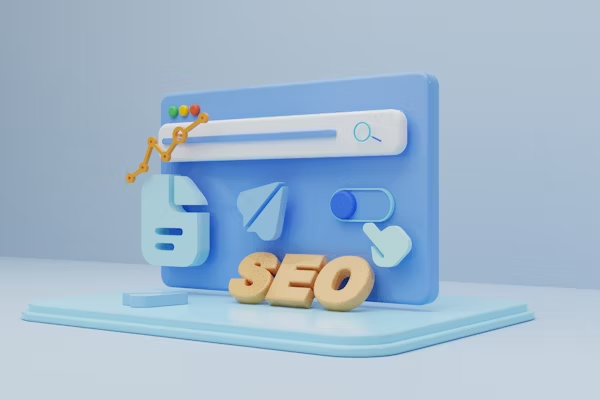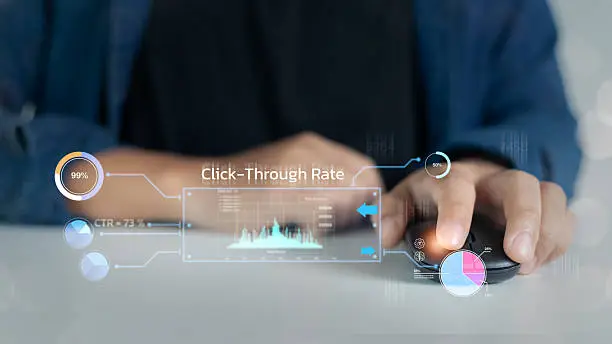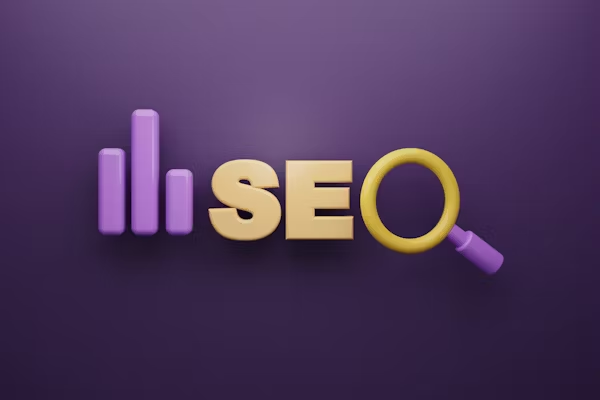Startups today operate in the ultra-competitive digital space. They are constantly looking for ways to grow faster, reach new market segments, and make smarter marketing decisions while keeping spending lean. Machine learning (and specifically its grandchild, AI) is the enabler that now allows them to do just that. And thanks to artificial intelligence, search optimization for startups can analyze user intent, personalize experience, and automate performance tracking in ways never before feasible.
Unlike conventional SEO techniques, which rely heavily on keyword stuffing and manual audits, AI-driven systems leverage machine learning algorithms, NLP (natural language processing), and predictive analytics to crunch the numbers and uncover patterns in data. These optimizing websites cater not only to search engines but also to user experience. This article explains how these technologies give startups a marketing advantage and why using AI is necessary today for startups to compete in the digital age.
According to McKinsey & Company’s report, “The economic potential of generative AI: the next productivity frontier”, companies adopting AI technologies are seeing transformative impacts on productivity, efficiency, and innovation. This highlights why startups embracing AI-driven SEO gain not just visibility but long-term strategic advantage in scaling and competing effectively in the digital economy.
Table of contents
- 1. Understanding AI-Driven Search Optimization
- 2. Automation and Predictive Analysis: A Game-Changer
- 3. Enhancing User Experience Through AI-Powered Design
- 4. Natural Language Processing (NLP) and Content Intelligence
- 5. Data-Driven Decision Making
- 6. Voice Search and Conversational AI
- 7. Integrating AI SEO Tools into Startup Ecosystems
- 8. The Future Outlook: Smarter, Adaptive SEO
- Conclusion
1. Understanding AI-Driven Search Optimization
AI-powered search engine optimization is the use of AI technology to improve a website’s visibility in search results. These are: deep learning, automation, and big data, which can make SEO more flexible and more innovative.
Advanced AI-driven SEO tools study user intent, voice search behavior, and semantic structures. Rather than focusing solely on keywords, they focus on context, enabling entrepreneurs to orient their content to what users are actually looking for. Rank Brain and BERT, Google’s machine-learning tools that interpret search queries to deliver a better answer by understanding what someone is asking for, are examples of that evolution.
With AI-powered search optimization, startups can eliminate some of that guesswork and check in the game, improve ROI, and scale content strategies without requiring a large internal marketing team.

2. Automation and Predictive Analysis: A Game-Changer
AI eliminates the manual drudgery that once consumed hours of SEO work. Automated crawlers can perform comprehensive audits, identify broken links, and assess technical SEO factors such as site speed, schema markup, and mobile optimization.
Beyond automation, AI tools use predictive analytics to anticipate keyword trends and user behavior. For instance, an AI system can detect that a specific phrase, say, “AI tools for startups,” is gaining traction months before it peaks. This insight helps marketers position content early and dominate search rankings when demand surges.
This predictive layer also assists companies that outsource search engine optimization to agencies. Instead of waiting for human analysts to report performance metrics manually, AI tools generate real-time insights that agencies can act on immediately, improving efficiency and reducing operational delays.
3. Enhancing User Experience Through AI-Powered Design
UX in Search: The Role of SEO UX and SEO are two vital facets to not only attract your audience, but also convert them. AI is as absolutely vital in web design, especially when it’s a part of AI-based systems managed by a Web design company that focuses on intelligent automation and data-driven development.
Design tools powered by AI utilize behavioral data to determine the optimal layout, color scheme and placement of content, working best with users. A few solutions are even able to conduct A/B testing on their own and get better at it by using user input to optimize bounce rate and conversion. For startups, it’s a stylish design that not just looks good but works well on devices and across platforms.
With AI, a progressive Web Design Company can go through the heatmaps, click-throughs, and dwell time in real-time to understand what keeps guests interested. Together with AI-powered SEO insights, this connection should result in enhanced load times, better mobile performance and a further increasing of ranking signals for Google’s Core Web Vitals.

4. Natural Language Processing (NLP) and Content Intelligence
One of the most profound impacts of AI on SEO lies in Natural Language Processing (NLP). NLP enables algorithms to understand context, tone, and semantics in human language, allowing search engines to match content with user intent more accurately.
AI-based content intelligence tools analyze millions of web pages to identify which language structures, topics, and sentiment perform best. For startups, this means content creation becomes more strategic and evidence-based. Instead of guessing what to write, NLP tools provide precise recommendations for topic clusters, readability improvements, and semantic variations, ensuring that content resonates with both search algorithms and human readers.
Moreover, startups that outsource search engine optimization benefit greatly from agencies that incorporate NLP-driven tools into their workflow. These agencies can create optimized content strategies that adapt to evolving algorithms without requiring constant manual updates.
5. Data-Driven Decision Making
AI transforms SEO from an art into a data science. Using big data analytics, startups can collect, process, and interpret massive datasets that reveal how users discover and interact with their brand.
AI platforms aggregate metrics such as click-through rates, dwell time, backlinks, and social signals, then convert them into actionable insights. This continuous learning loop enables startups to adapt their SEO strategies dynamically, improving decision-making speed and precision.
The ability to process thousands of data points in seconds gives startups a distinct advantage over competitors relying solely on traditional SEO methods. Instead of reacting to changes, AI enables prediction and preparation, turning search optimization into a proactive growth engine.

6. Voice Search and Conversational AI
Voice search is rapidly becoming a cornerstone of digital marketing, driven by the rise of virtual assistants like Siri, Alexa, and Google Assistant. AI enables search systems to interpret natural, conversational language and deliver results that align with speech patterns rather than typed queries.
For startups, optimizing for voice search means focusing on long-tail keywords, question-based content, and structured data. AI-powered platforms simplify this process by analyzing voice query data and identifying opportunities for better ranking.
A Web Designing Company that incorporates conversational AI features into its websites, such as chatbots and voice navigation, can further enhance user interaction while supporting SEO by driving longer session times and stronger engagement signals.
7. Integrating AI SEO Tools into Startup Ecosystems
The future of marketing startups is also about adopting AI SEO tools and implementing them across your platforms (CMSs), analytics dashboards, support suites, and automation suites. Today, startups can make use of tools like Surfer SEO, Clearscope, Jasper, and MarketMuse that leverage NLP (Natural Language Processing), deep learning, and predictive analytics to drive optimization strategies.
This is where AI-driven marketing agencies step in to help startups outside the valley, without the need for costly in-house infrastructure. Human creativity combined with AI accuracy means every piece of content and campaign is both strategic and technically excellent.
8. The Future Outlook: Smarter, Adaptive SEO
SEO will adapt its requirements as the algorithms change. The following phase will be adaptive SEO, where AI continues to learn from real-time data and self-optimizes campaigns on the fly without human intervention.
It would be an advance for Generative AI with metadata creation, automatic link building and predicted ranking in real-time in the next 5 years. Meanwhile, AI-driven design systems will help a Web design service build dynamic sites that adapt to user behavior.
AI will eventually change SEO from a one-time set-up and forget it type of thing, manually done on launch day, into a learning, self-sustaining system that runs 24/7 and scales along with the startup.
Conclusion
AI-powered search optimization represents more than a technical upgrade; it is an evolutionary moment for your strategy. “By using automation, data intelligence and machine learning, startups can beat the odds of established barriers to scale and compete with incumbent players on a global basis.”
Whether infusing AI-based analytics, applying advanced image search methods, or outsourcing search engine optimization to experts, startups are left with and exposed to more intelligent systems that constantly evolve, adapt, and render results that can be measured.
As the AI landscape matures, it too will play an increasingly powerful role in SEO as well as web design, equipping every risk-taking Web design company and SaaS start-up leaning into technology as their best marketing weapon.











